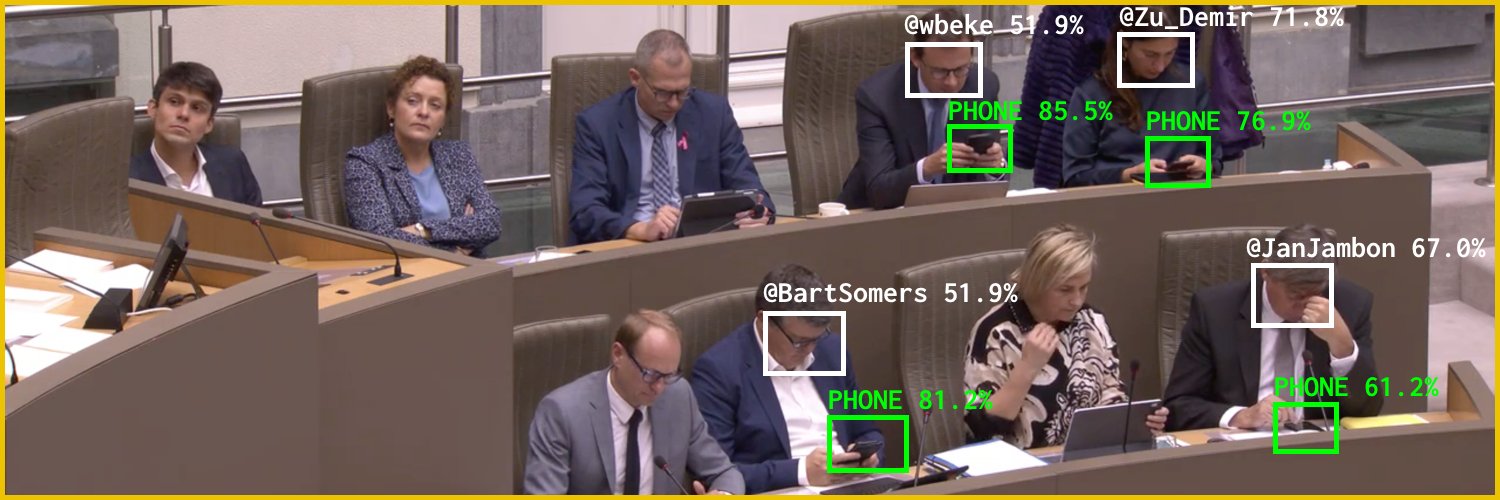The word parliament generally will be pictured as a place where debates and proposals of bills happen, and technology in parliament doesn’t ring a bell to most of us, and there is nothing wrong with that too. However, this is not the case everywhere as several countries and individuals are continuously working to enable Artificial Intelligence (AI) and Machine Learning (ML) to improve policymakers’ efficiency.
For example, a Belgian man (who describes himself as an artist) created an AI system that automatically detects politicians who are distracted during a House session and tags them on Twitter.

Dear distracted @JanJambon, pls stay focused! pic.twitter.com/rB1P3w8oR7
— The Flemish Scrollers (@FlemishScroller) March 9, 2022
The South African Parliament is investigating the use of a chatbot to assist MPs. According to the inter-parliamentary union, this chatbot will assist policymakers in checking the status of Bills, resolutions, and questions, among other things. These bots can also answer questions such as: Where is the meeting location? Has my trip been approved yet?
The United States has already implemented automation in its Parliament and this automation helps in distinguishing between bills, amendments, and current laws. Although this automation still requires human intervention, the claim is that it has a 90% accuracy rate.
Switzerland is on the verge of giving a robot the position of “Member of Parliament.” When the Swiss foreign policy think tank Foraus, in collaboration with Swissnex, invited ideas for developing an AI strategy for Switzerland, the demand for an ‘AI-Bundesrat’ arose. The Bundesrat is a federal council.
According to Luca Brunner, a former Foraus board member who presented the idea, “the ‘AI-Bundesrat’ would thus always lead the “big data department” and assist the government in making more informed decisions. It could, for instance, provide additional information on the impact created by a specific policy or calculate the costs of a policy recommendation.
Brunner also specified the possibility of the Swiss political system becoming more democratic since citizens could communicate directly with the government via an online channel. AI-Bundersrat will have all of the facts at their disposal and may be able to bring the voices of ordinary citizens to the Parliament.
The steps taken by countries such as Switzerland have pushed parliaments worldwide to use more of the digital tools at their disposal. The use of digital tools by MPs has increased, according to the World Parliament Report 2022. Policymakers, who are frequently referred to as “boomers,” are now utilizing communication tools such as instant messaging and social media.
According to the report, Committee use of social media was reported to be 45 percent. While the use of social media and smartphone apps has grown (to 30% for the latter), more interactive and deliberative tools have lagged. Approximately 23% of parliaments reported using e-petition.
When it comes to reports, the Netherlands House of Representatives has launched a ‘Speech2Write’ system which allows the Parliamentary reporting officer to transcribe voices into written reports. According to the Inter-Parliamentary Union, Speech2Write contains features such as automatic speech recognition and automated editing capabilities that can eliminate fillers, fix grammatical errors, and suggest editing decisions.
Simultaneously, Japan is developing a system that will make parliamentary videos available via Google search. The National Graduate Institute for Policy Studies, Japan (GRIPS) is working on combining speech recognition and audio and visual data analysis.
What is India’s position?
With all such developments happening worldwide, it’s quite common to think of what is India’s position in this matter. In India, there are only a few policymakers who can address the concerns of 130 million people. Although the government intends to strengthen its position in the coming years with the all-new Central Vista project, it will be impossible to address all issues in Parliament.
Thanks to AI, there might be a way to resolve this issue, as we have already witnessed other countries innovate and turn parliamentary activities more productive. The bright side is that India already has one such project in the works as part of the ‘One Nation, One Application’ initiative. This initiative has resulted in the creation of the National E-Vidhan (NeVA) portal.
The NeVA portal was intended to be released in two phases. The plan for the first phase is to make parliamentary activities paperless and collect as much data as possible. Automation and artificial intelligence (AI) will be introduced in parliamentary activities during the second phase.
The NeVA system’s second phase will be implemented after the successful implementation of the first phase in each state assembly as well as the Parliament.
Himachal Pradesh has already executed e-Vidhan as a pilot project, according to a report by the Ministry of Parliamentary Affairs. The first phase will offer services in a variety of domains. For example, it could allow the speaker’s time to be recorded and accumulated; it could also control 3-voting and exhibit results.
Parliament members can submit the questions online, group them, prepare a final list, and publish it. The system can upload and maintain all Bills to be introduced, as well as suggest, scrutinize, and modify them.
However, AI, which has yet to be implemented, is what makes a parliament truly intelligent.
Where can India find inspiration?
When it comes to introducing AI in parliament, India has a massive playing field. NeVA’s platform has already accumulated massive amounts of data, and Aadhaar data is also available to the Union government.
India, as the world’s largest democracy, can take a more inclusive approach. Brazil, for example, has developed its own AI system, Ulysses, which promotes transparency and citizen participation.
According to IPU, the system can arrange the latest documents and tag them more efficiently within the Chamber’s public-facing web portal. As a result, the website can automatically recommend and offer content based on users’ preferences.
Different parts of India face unique challenges. A citizen of Delhi, for instance, wants clean air, whereas a citizen of Bihar needs more literacy and opportunities.
Hence India can create a system similar to AI-Bundesrat. There are 245 MPs in Parliament; surely, there can be one more addition who can represent the entire country more effectively.




